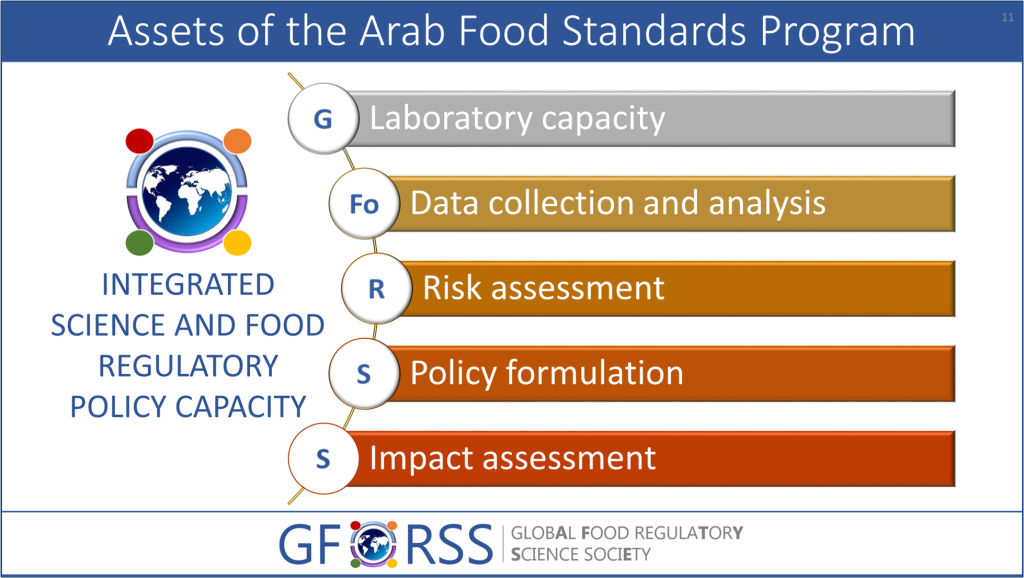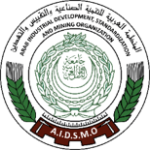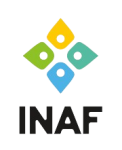♥ The warmest heartfelt embrace to our SPONSORS, whose generosity and gracious support make our initiatives possible, for the collective benefit of the food regulatory science community – THANK YOU ♥
If you like what you see, do not hesitate and reserve this spot for your organization’s logo – show your support and become a sponsor today!
INITIATIVE 25-01 • SYNOPSIS
Harmonized Arab Import Pesticide Maximum Residue Limits • Aiming for Convergent, Science-Based Pesticide MRLs in the Arab Region for Non-Registered and Safe Pest Management Applications
![]() English | Français | العربي
English | Français | العربي
The Issue
Pest management applications are not uniformly registered with international jurisdictions. This is because, due to different climatic conditions and the variety of agricultural practices, pest management applications are not needed in the same fashion.
The International Food Standard Setting Body, the FAO / WHO Codex Alimentarius Commission (Codex) supports the harmonization of pesticide residue management through the issuance of Maximum Residue Limits (MRLs) for Pesticides, based on scientific assessment conducted by its advisory body: the Joint Expert Meeting on Pesticide Residues (JMPR). However, due to continued innovation in the development of phytosanitary applications, it is possible that substances may be registered and used in various countries, with no MRL set by Codex.
Such situations may lead to impediments to trade, where a shipment of safe and nutritious crops may face rejection by an import market, because of pesticide residues identified on crops, where the pesticide is not registered in the importing country and where there is no Codex reference.
Rejecting such shipments indiscriminately would result in food loss and would exacerbate food insecurity issues.
While Codex continues to make progress towards added harmonization of food regulatory measures related to pesticide management, it is imperative to identify a process that overcomes such discrepancies in food regulatory measures with negative repercussions on trade and food security.
The Initiative
The Global Food Regulatory Science Society (GFoRSS) is collaborating with Crop Life Africa Middle East to develop and deploy an initiative aiming to support the development of a set of harmonized Import MRLs (IMRLs) for the Arab region.
This initiative will be carried out in partnership with the Arab Industrial Development, Standardization and Mining Organization (AIDSMO), subsidiary organization of the League of Arab States with the responsibility to support the unification of standards applied in members countries, namely countries of the League of Arab States, members of AIDSMO.
What will Change?
A science and evidence-based approach will be developed to identify priority pesticides for which IMRLs are needed.
Data will be collected from member countries and will support a scientific assessment and the formulation of options for the needed IMRLs.
AIDSMO will solicit the input and collaboration of its network of standardization organizations to seek data and solicit the review and the ultimate endorsement of the proposed IMRLs.
These IMRLs can be adopted to complement existing pesticide residues standards for countries of the region, with the aim to reduce trade impediments and undue rejection of safe crops.
This initiative will align with the objective to unify food standards requirements in the Arab region, initiated by AIDSMO with the aim to promote science-based food regulatory decision making and support enhanced intra-regional trade of food and agrifood commodities in the Arab region.
Considerations for Program Organization and Management
AIDSMO, as the custodian of standards in the Arab region, overseen by the Arab High Standardization Committee, will develop and manage the governance of the Program, in accordance with the organization’s guidelines and procedures.
AIDMSO, through its collaboration with GFoRSS, covered by a Memorandum of Understanding between both organizations, will be developing the funding requirements and sustainability of resources necessary for the implementation of this Program.
CLAME will solicit input from its members to identify the priority pesticide applications that warrant the consideration of the development of harmonized IMRLs in the Arab region and the availability of the scientific information to accompany the safety assessment and MRL development process.
AIDMSO and GFoRSS will be working with existing and developing competencies in food risk analysis available from food competent authorities in the Arab region, and beyond, to support the development of pilot projects component of the
Arab Food Standard Program (Figure 1).

Figure 1: Assets envisaged through the Development of the Arab Food Standards Program
To Further Support This Endeavour….
This Program is implemented jointly by the Global Food Regulatory Science Society (GFoRSS) in Collaboration with the Platform of Food Risk Analysis and Regulatory Excellence (PARERA) of Laval University and the Institute of Nutrition and Functional Foods (INAF).
Projects will be managed with complete transparency as to how funds are used, including comprehensive coverage on planning of the various milestones and reporting.
Contributions to this initiative can be made in one of two ways:
- To GFoRSS by submitting the Sponsorship form found here: https://gforss.org/initiatives/25-01/#form
- To PARERA via the following link: https://www.dprd.ulaval.ca/donner/fonds/0645/
GFoRSS SPONSORSHIP FORM
Opportunities may be limited, secure your investment today!





